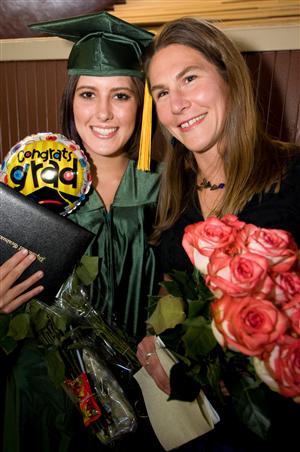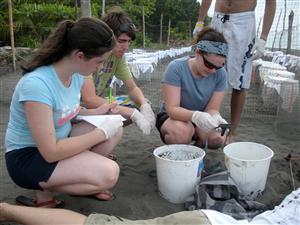- Forest Charter School
- Personalized Learning
-
 Personalized Learning is a unique, blended classroom and non-classroom based public educational model that is tailored to the needs and interests of each individual student. Personalized Learning is a 21st century, "on the leading edge" approach to public education that honors and recognizes the unique gifts, skills, passions, and attributes of each child. Personalized Learning is dedicated to developing individualized learning programs for each child. The intent is to engage each child in the learning process—making it productive, relevant, and meaningful. The goal is to optimize the student’s learning potential and success. The key attributes that comprise the Personalized Learning model are based upon a solid foundation of the latest educational research findings as to how students learn most successfully. These attributes include the following:
Personalized Learning is a unique, blended classroom and non-classroom based public educational model that is tailored to the needs and interests of each individual student. Personalized Learning is a 21st century, "on the leading edge" approach to public education that honors and recognizes the unique gifts, skills, passions, and attributes of each child. Personalized Learning is dedicated to developing individualized learning programs for each child. The intent is to engage each child in the learning process—making it productive, relevant, and meaningful. The goal is to optimize the student’s learning potential and success. The key attributes that comprise the Personalized Learning model are based upon a solid foundation of the latest educational research findings as to how students learn most successfully. These attributes include the following:
- A strong emphasis on parental involvement
- Smaller class sizes
- More one-on-one teacher and student interaction
- Attention to differences in learning styles
- Student-driven participation in developing the learning process
- Online learning
- Varied learning environments
- Teacher and parent development programs
- Choices in curriculum programs
Why is the Personalized Learning model advantageous?Education research confirms that not all students are able to learn successfully at the same pace, with the same approach, in the same environment, on the same path, and in the same style and manner. Furthermore, every individual assimilates information according to his or her own unique learning style, needs, and interests. Learning styles vary:
some people are visual learners, others learn by auditory means, and others kinesthetic. Some people learn at a faster pace, others need more time. Some students feel distracted, intimidated, or unsafe in a large classroom environment. Motivation to learn varies significantly from student to student. Interests and passions vary. Personalized learning has the ability to adapt to these individual student needs.
Key Components of Forest’s Personalized Learning Program:The Personalized Learning model embodies flexibility, inclusion, collaboration, and innovation. Forest Charter School recognizes the value of parents' involvement and participation in their children's education and learning process. We support a collaborative relationship between parent, student, teacher, and school in creating an optimal learning process. Forest Charter recognizes a variety of learning choices and opportunities, both within and beyond the classroom, to address each student's individual learning needs and optimize each student's learning potential.

- Forest Charter provides a wide variety of curriculum choices, attention to individual learning styles, technology access, and a variety of learning environments and opportunities both within and beyond the classroom so that learning programs may be tailored according to the individual needs and preferences of each student.
- Parents are strongly encouraged and supported to be actively involved in their children’s education and to take personal responsibility for ensuring that their children are learning successfully.
- Forest Charter supports and facilitates learning program development and oversight through an ongoing collaborative relationship between parents, students, teachers, the school, the greater community, and the state.
- Forest Charter is committed to reduced class sizes, generally limiting attendance to no more than 15–20 students per class.
- Forest Charter utilizes a variety of assessment tools to determine student academic achievement. Certificated teachers oversee student progress toward satisfying state academic standards through the regular recording of detailed learning records, compiling student portfolios, and conducting annual state mandated testing programs.
- Forest Charter devotes the majority of the budget for the instructional benefit of our students. This includes providing students with certificated supervising teachers providing expertise and oversight, technology access, and a wide variety of learning choices and environments that students need in order to be successful academically.
- Forest emphasizes dynamic staff development programs that help supervising teachers learn how to tailor learning according to their student’s learning styles, needs, and aspirations.
How it worksAfter the enrollment interview and the completion of all enrollment paperwork, a credentialed supervising teacher (ST) is assigned to the student. At this point, the collaboration begins with the ST, student and parent creating the dynamic educational team.
After discussing the student's educational goals, curriculum options and methods for delivery are addressed. Graduation requirements and college or vocational goals are reviewed. A plan is then established that integrates California State content standards with the desired methods and approaches to learning.
Role of the FCS Supervising TeacherFollowing enrollment, the ST will meet regularly to assign and evaluate student work, monitor attendance, and document student progress toward course completion. Samples of student work in each of the core subjects are submitted to the charter school each assignment period.
Student work samples might include written work, videotaped performances, photo journals, etc. Progress is also recorded by semester report cards, required from grades 8 to 12.

